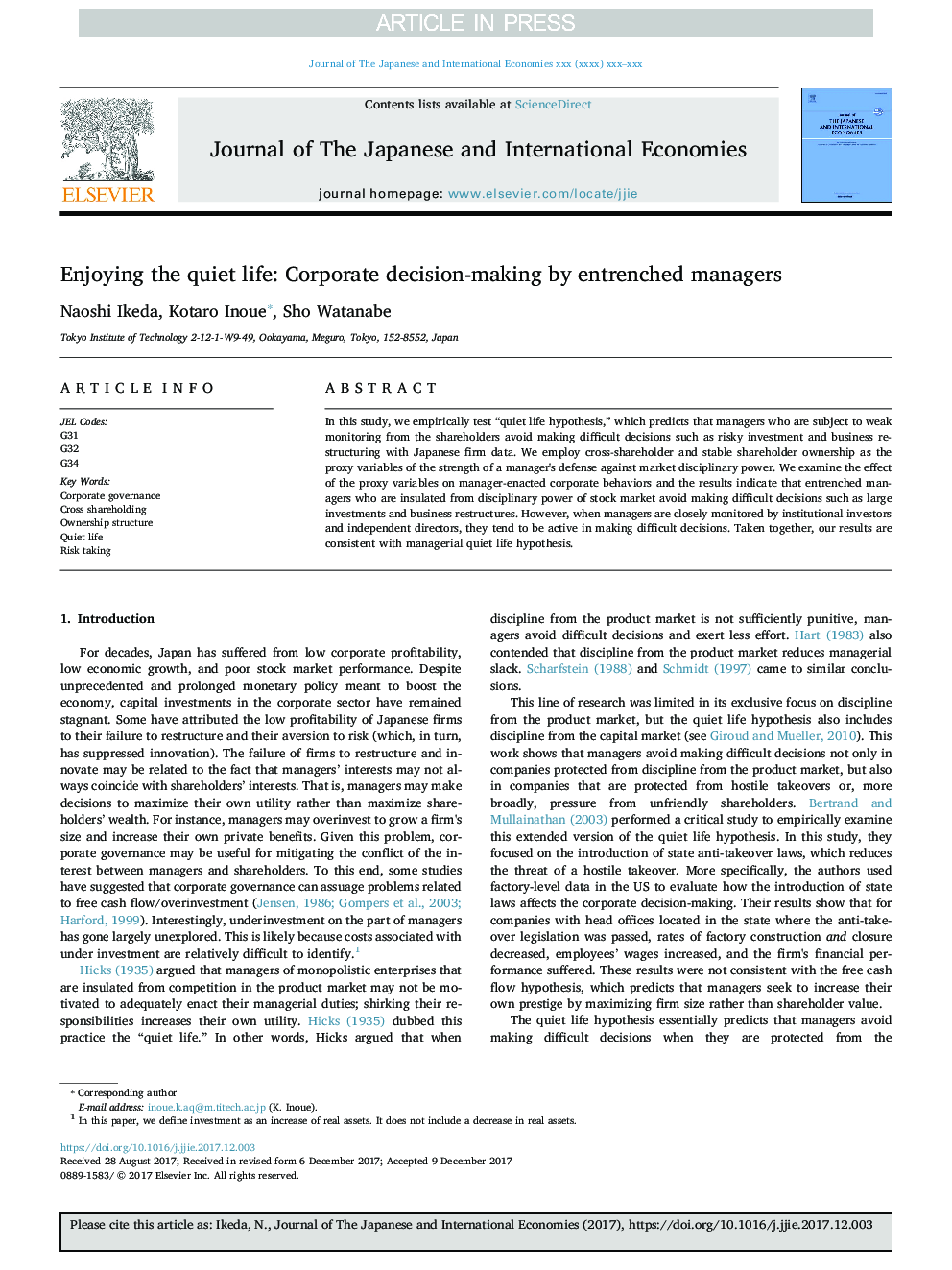| Article ID | Journal | Published Year | Pages | File Type |
|---|---|---|---|---|
| 7366297 | Journal of the Japanese and International Economies | 2018 | 15 Pages |
Abstract
In this study, we empirically test “quiet life hypothesis,” which predicts that managers who are subject to weak monitoring from the shareholders avoid making difficult decisions such as risky investment and business restructuring with Japanese firm data. We employ cross-shareholder and stable shareholder ownership as the proxy variables of the strength of a manager's defense against market disciplinary power. We examine the effect of the proxy variables on manager-enacted corporate behaviors and the results indicate that entrenched managers who are insulated from disciplinary power of stock market avoid making difficult decisions such as large investments and business restructures. However, when managers are closely monitored by institutional investors and independent directors, they tend to be active in making difficult decisions. Taken together, our results are consistent with managerial quiet life hypothesis.
Related Topics
Social Sciences and Humanities
Economics, Econometrics and Finance
Economics and Econometrics
Authors
Naoshi Ikeda, Kotaro Inoue, Sho Watanabe,
